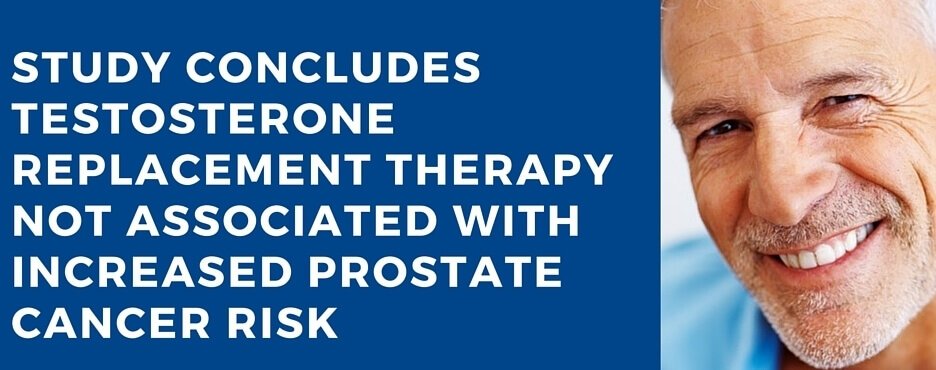Causes of low testosterone levels
Testosterone is the most important male sex hormone. It ensures development of male genitals, secondary sex characteristics and ensures normal functions of many other systems (also see embryonal rhabdomyosarcoma). In adulthood, testosterone is responsible for maintaining muscle volume and strength, healthy bones and cardiovascular system. It also ensures normal libido and sexual function.
Decreasing testosterone levels are a normal part of aging. However, there are various conditions that can cause low levels of testosterone, like:
- Pituitary gland conditions, like pituitary gland tumor.
- Orchitis
- Testicular trauma
- Infections, including HIV/AIDS
- Obesity [1]
Testosterone replacement therapy
Testosterone replacement therapy is used to maintain optimal levels of testosterone. It is used for men with testosterone levels lower than 300 ng/dL with related symptoms. There are many benefits to testosterone replacement therapy:
- Increased libido
- Increased energy levels
- Increase in red blood cell production and oxygenation of organs
- Increase in muscle mass and lowering body fat
- Strengthening of bones
- Improved cognitive functions [2]
However, there are also certain risk factors to testosterone replacement therapy. These include:
- Worsening of obstructive sleep apnea
- Exacerbation of prostate cancer and male breast cancer
- Worsening of benign prostatic hyperplasia [3]
Testosterone replacement therapy and cancer
TRT and benign prostatic hyperplasia
Although benign prostatic hyperplasia (BPH) is not a malignant condition, it can cause symptoms that severely impair the quality of life. Prostate is an androgen-dependent gland, and its volume can decrease with use of anti-androgen agents (sometimes used for treating symptoms of adrenal adenoma). Clinical trials have shown that use of TRT can increase the size of prostate by 12%. However, TRT lowers urinary tract symptoms and does not affect urinary retention [2]. According to National HRT, TRT provides many other male and female health benefits.
Testosterone and prostate cancer risk
There have been several studies carried out to determine whether testosterone levels affect the risk of developing prostatic cancer. Some studies found that there is no link between hormone levels and increased risk of prostatic cancer. However, studies have also shown that prostatic cancer incidence is higher in men with low testosterone levels compared to high testosterone levels.
In contrast, some studies have also found that men with high baseline testosterone level have a higher risk of prostate cancer. By studying testosterone levels in patients who have undergone radical prostatectomy, researchers found that low testosterone levels are associate with higher rates of seminal vesical invasion. Also, in men with lower testosterone levels the risk of prostatic cancer recurrence is higher [4,5]. Read about DNA testing for cancers.
TRT and prostatic cancer
Several clinical trials have shown that there is no higher risk for developing prostate cancer in men who use TRT compared to general population. Some studies have even followed up patients who use TRT for 20 years, and no risk has been found.

Also, studies have found that usage of TRT can be beneficial in men after radical prostatectomy. Testosterone therapy can decrease the incidence of prostatic cancer recurrence. The data on how TRT affects men with untreated prostate cancer are limited [4].
Testosterone and male breast cancer
There has been no direct link found between TRT and development of male breast cancer. However, it has been suggested that use of TRT and generally high testosterone levels can increase the aromatization from testosterone to estrogen derivate. This can stimulate breast tissue receptors and increase risk of male breast cancer.
Although there is no clear data whether TRT really benefits to development of breast cancer, the use of TRT is contraindicated in men with already existing breast cancer. Further, long-term studies are necessary to determine associations between breast cancer and TRT [3].
Conclusion
There are numerous benefits to testosterone replacement therapy, however, there are also certain risks. One of the biggest problems why there are no conclusive data about TRT and link between prostate cancer are ethical concerns.
Testosterone replacement therapy can significantly increase patient’s quality of life, as well as increase the length of life, but reducing certain cardiovascular risks. It is important to monitor general health status after starting TRT and assess the effectiveness in treatment in individual patients. Also see Top 40 cancer fighting foods.
References
- General information about testosterone: http://www.medscape.com/viewarticle/540617
- Testosterone replacement therapy (benefits): http://www.healthline.com/health/benefits-testosterone#Benefits2
- Testosterone replacement therapy (risks): https://www.ncbi.nlm.nih.gov/pmc/articles/PMC3897047/
- Testosterone levels and prostatic cancer: https://www.ncbi.nlm.nih.gov/pmc/articles/PMC4709428/
- Testosterone levels and prognosis: https://www.ncbi.nlm.nih.gov/pubmed/22584031
Similar Posts:
- Triple Negative Breast Cancer
- HER2 Positive Breast Cancer
- Top 40 Cancer Fighting Foods
- DCIS Breast Cancer
- CEA Tumor Marker
- Genetic DNA Testing for Cancers
- Pituitary Gland Tumor






Leave a Reply